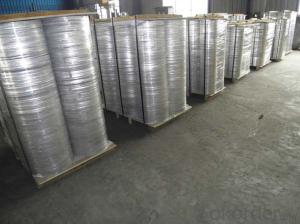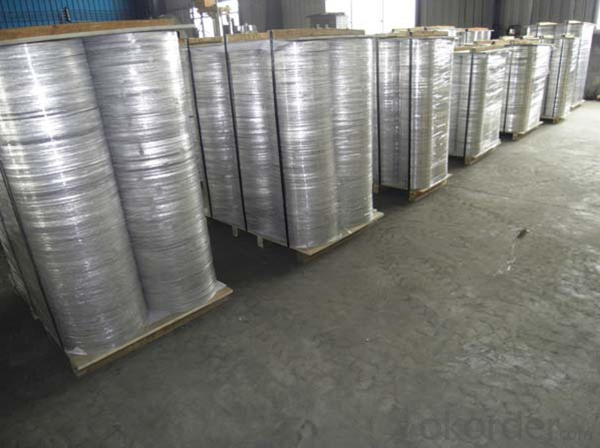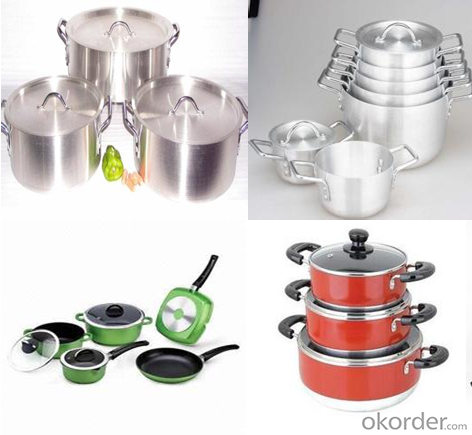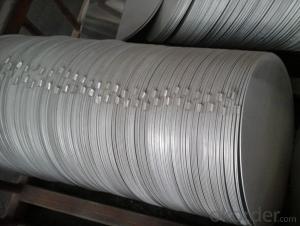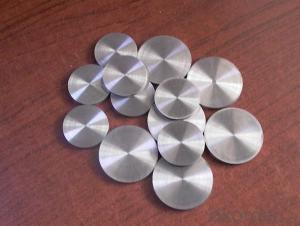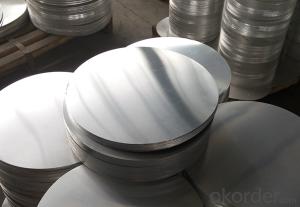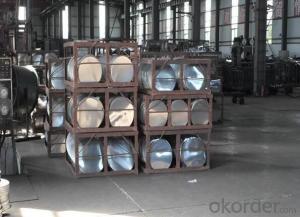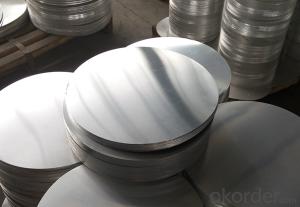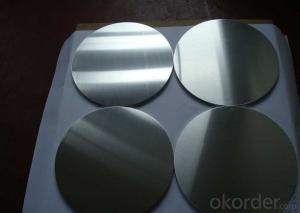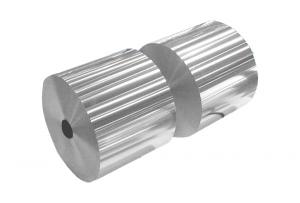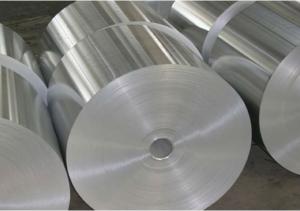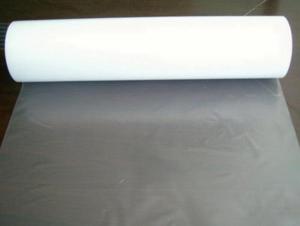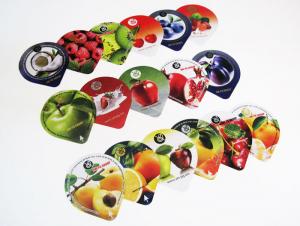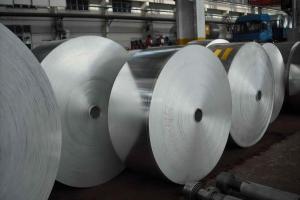Aluminum Cookware Fried Pans Circle Sheet
- Loading Port:
- Shanghai
- Payment Terms:
- TT OR LC
- Min Order Qty:
- 5 m.t.
- Supply Capability:
- 10000 m.t./month
OKorder Service Pledge
OKorder Financial Service
You Might Also Like
Specification
1.Structure of Aluminum Circle Sheet for Cookware Fried Pans Description
• Product: Aluminim Circle
• Application: It is used in cookware, engineering, lighting purpose, fried pans, non-sticky pans, cooking pots, kettles, hard anodize cook wire, pressure cooker and house hold utensils, reflector of the light, etc
• Advantage: Deep drawing and hard anodizing quality Aluminum Circle Sheet can be supplied. Our Aluminum Circle is RoHS and REACH compliance and uses well-protected packing. Our circles are excellent material for producing cookware, utensil, pots, pans and kettles.
2.Main Features of the Aluminum Circle Sheet for Cookware Fried Pans
• High manufacturing accuracy
• Smooth surface
• No waves
• High strength of extension and yield
• Well packaged
3.Aluminum Circle Sheet for Cookware Fried Pans Images
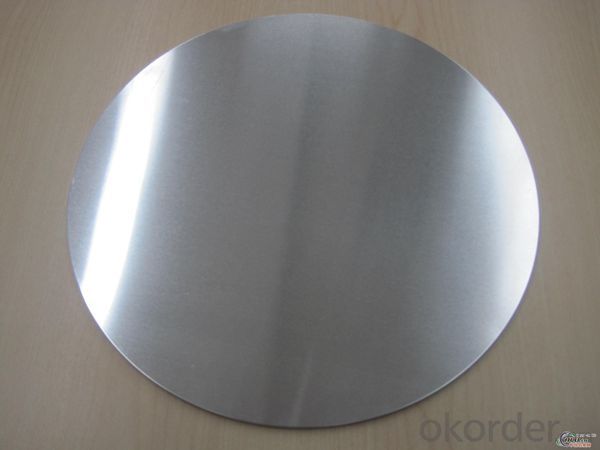
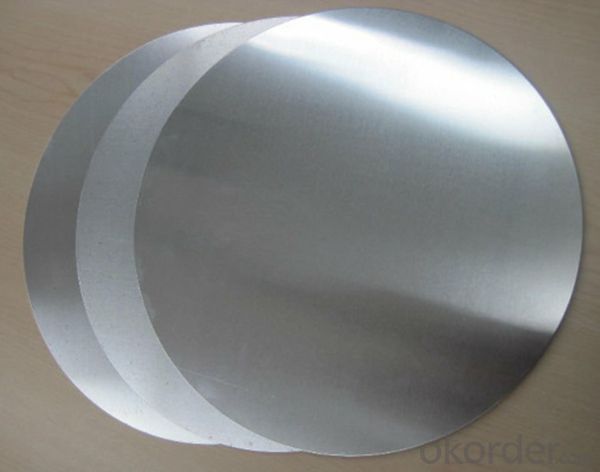
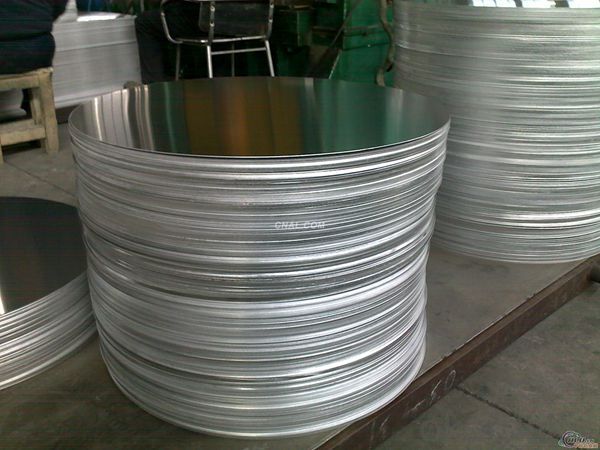
4.Aluminum Circle Sheet for Cookware Fried Pans Specification
Alloy | AA1050,AA1060,AA1100 AA3003etc. |
Temper | O,H14 |
Thickness | 0.5MM-4MM |
Diagonal | 100-1200MM |
Standard | GB/T 3880-2006 |
5.FAQ of Aluminum Circle Sheet for Cookware Non-sticky Pans
We have organized several common questions for our clients,may help you sincerely:
① How about your company?
A world class manufacturer & supplier of aluminum coil and alloy blanks. Aluminum production base is comprised of 18 aluminum annealers, 10 coil and foil mills, 4 continuous production lines, 2 hot rolling production line and 3 prepainted lines.
Export 5000 tons per month to Asia, America and Middle East. Always do the best for our clients.
②Can you guarantee the quality of the products?
We are responsible for the quality of materials to get a long-term cooperation with clients in a reasonable period of time and we are glad to arrange and coordinate any third party inspection for you.
③What is the delivery time after purchase?
35 day after receiving client’s deposit or correct LC
- Q: Is it safe or permissible to use aluminum in food packaging materials?
- <p>Yes, aluminum is commonly used in food packaging due to its lightweight, durability, and excellent barrier properties against air, moisture, and light. It is used in various forms such as aluminum foil, cans, and flexible packaging materials. However, it's important to ensure that the aluminum packaging is food-grade and complies with safety regulations to prevent any potential health risks associated with aluminum exposure.</p>
- Q: Can reusing old aluminum foil be utilized for cleaning tasks in kitchen or bathroom areas?
- <p>Yes, old aluminum foil can be used for cleaning purposes in a kitchen or bathroom. It's particularly effective for scrubbing pots and pans, removing burnt-on food, and cleaning glass and tiles. The shiny side of the foil can be used to remove scuff marks from floors and the dull side can be used to scrub away stubborn stains. However, it's important to avoid using foil that has been in contact with acidic or corrosive substances, as it may have become damaged or weakened, and could potentially scratch surfaces. Always test on a small, inconspicuous area first to ensure it doesn't damage the surface you're cleaning.</p>
- Q: What are the pros and cons of utilizing aluminum foil in everyday life?
- <p>Aluminum foil has several advantages, including its affordability, heat conductivity, and ease of use. It's commonly used for food storage, cooking, and insulation. However, it also has disadvantages such as being a single-use item contributing to waste, potential health risks when used with acidic or salty foods, and the environmental impact of its production and disposal. It's lightweight and can be easily torn, which might lead to improper sealing or covering.</p>
- Q: Describe the process of electrolysis used in aluminum production.
- <p>The process of electrolysis for aluminum production involves the Hall-H茅roult process, which is the primary method for extracting aluminum from its ore, bauxite. First, bauxite is refined to produce aluminum oxide (alumina). This alumina is then dissolved in a molten cryolite bath, which lowers the melting point and increases the electrical conductivity. Large amounts of electricity are passed through the bath, causing the alumina to decompose into aluminum metal and oxygen gas. The aluminum collects at the bottom of the cell and is periodically tapped off, while the oxygen is released into the atmosphere. This energy-intensive process is crucial for the aluminum industry, as it allows for the production of large quantities of aluminum, a key material in various industries.</p>
- Q: Is aluminum a suitable material for use in space exploration?
- <p>Yes, aluminum is indeed used in space exploration. It is valued for its lightweight properties, which are crucial for reducing the mass of spacecraft and payloads. Additionally, aluminum has good thermal conductivity and can withstand extreme temperature variations, making it suitable for various components in spacecraft. It is also resistant to corrosion and has high reflectivity, which can be beneficial for heat management and communication systems. However, its low strength-to-weight ratio compared to some other materials like titanium or advanced composites means it is often used in combination with other materials or for specific applications where its properties are advantageous.</p>
- Q: Explain the distinctions between aluminum alloys and pure aluminum in a few sentences.
- <p>Aluminum alloys and pure aluminum differ in composition and properties. Pure aluminum is soft and has low strength, making it less suitable for structural applications. In contrast, aluminum alloys are made by combining aluminum with other elements like copper, magnesium, or silicon to enhance strength, durability, and resistance to corrosion. These alloys maintain the lightweight nature of aluminum while offering improved mechanical properties, making them ideal for various industries, including aerospace, automotive, and construction.</p>
- Q: Is it possible to recycle aluminum from old products to create new ones?
- <p>Yes, aluminum can be recycled to make new products from old ones. Recycling aluminum is a highly efficient process that requires only 5% of the energy needed to produce new aluminum from raw materials. This process is not only environmentally friendly but also economically viable. Recycled aluminum maintains its quality and can be used to create a wide range of new products, from cans and packaging to automotive parts and construction materials.</p>
- Q: What specific rules or guidelines are there for incorporating aluminum in construction projects?
- <p>Yes, there are special regulations for using aluminum in construction projects. These regulations vary by country and region but generally include standards for material properties, structural integrity, fire resistance, and environmental impact. For instance, the American Society for Testing and Materials (ASTM) and the Aluminum Association provide guidelines for aluminum usage in construction. Compliance with building codes is crucial, and these codes often specify the grades of aluminum, allowable stress values, and methods of joining. Additionally, considerations for corrosion resistance, thermal expansion, and recycling potential are important. It's essential to consult local building codes and industry standards to ensure compliance when using aluminum in construction.</p>
- Q: Is aluminum a suitable material for use in electronic components or devices?
- <p>Yes, aluminum is used in electronics, primarily for its excellent thermal conductivity and electrical conductivity. It is commonly used in heat sinks to dissipate heat from electronic components, such as CPUs and power transistors. Additionally, aluminum is utilized in capacitors and as a conductor in wiring due to its low electrical resistance. However, it is not used as widely as copper for electrical conductivity applications due to copper's superior properties.</p>
- Q: Is there a more environmentally friendly method for recycling aluminum?
- <p>Yes, aluminum can be recycled in a more environmentally friendly way. The process of recycling aluminum is already quite efficient, as it requires only 5% of the energy needed to produce new aluminum from raw materials. However, further improvements can be made by optimizing recycling processes, reducing transportation emissions, and increasing the use of recycled aluminum in new products. Additionally, implementing closed-loop recycling systems where aluminum is continuously recycled without loss in quality can minimize waste and environmental impact. Educating consumers about the importance of recycling and improving collection systems can also contribute to more sustainable aluminum recycling practices.</p>
Send your message to us
Aluminum Cookware Fried Pans Circle Sheet
- Loading Port:
- Shanghai
- Payment Terms:
- TT OR LC
- Min Order Qty:
- 5 m.t.
- Supply Capability:
- 10000 m.t./month
OKorder Service Pledge
OKorder Financial Service
Similar products
Hot products
Hot Searches
Related keywords
